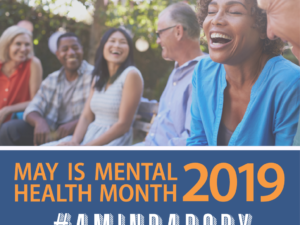Knowing the Benefits of Mindful Meditation
April 24, 2020



Learning how to spend time with your mind is sometimes difficult. Sitting still and keeping your mind from racing often ends the meditation exercise before you experience the benefits. But many positive results of meditation lead to better well-being:
- You may discover what is behind your mental pain and anxiety. This revelation will lead to better understanding of your feelings.
- Mindful meditation lowers your stress level. Significant medical evidence shows that excess stress causes illness and can make other illnesses worse. Mindfulness will help you to connect more meaningfully with your family and friends.
- Your focus and concentration will improve with mindful meditation. It will be easier to stay on task at work and at leisure. Meditation exercises will also reduce “brain chatter,” those voices in your head that never seem to stop.
Put these benefits to the test with this meditation exercise!
This is an orientation exercise. It can also be used for relaxation or emotional regulation. We are orienting to what is above us and what is below us using the points of the sky and the ground. How it works is we visualize the two directions as a way to take a break, pause our thoughts, change our attention and reorient ourselves mentally and physically.
Take a moment wherever you are and imagine what is above you, beyond the ceiling of the room, beyond the roof of the building, maybe a tree line or the clouds in the sky. Imagine the sky. This is above you.
Now imagine what is below your feet. This could be the ground, the foundation of the building you’re in, beyond this to the earth and soil. Imagine the earth. This is below you.
Now picture how your body is in between these two points. The earth is below and the sky is above. This is true if you’re in an airplane or a boat. Use this visualization to feel more centered or to calm your thoughts. You can add breath work to this part, or do some stretching or movement. Feel free to be creative!
– Meditation by Thomás Grubb, LPC and research by Harriet Vanderbilt






